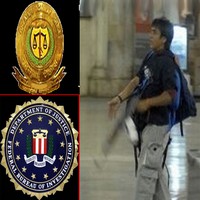FBI Reports Crime Drops in First Half of 2009
According to the latest statistics released by the FBI, U.S. violent crime could drop for a third full year in a row, a steady decline despite the harsh economic recession that some policymakers and police groups had feared would lead to an upward spike.

The number of murders plummeted 10 percent compared to the same six-month period in 2008, while robbery fell 6.5 percent and forcible rape dropped 3.3 percent, according to preliminary statistics released by the FBI.
Violent crime in all of 2008 fell 1.9 percent from 2007.
But in some cities hit hard by the economy, like Baltimore and Detroit, the murder rate climbed. In Detroit, hurt by the auto industry's woes, there were 163 murders reported in the first six months of 2009 versus 146 during the same period in 2008.
But other cities where murder rates had been high, like New York and Los Angeles, saw a drop off. In New York, there was a drop from 252 murders in 2008 to 204 reported during the first half of 2009, Reuters reports.
It was also reported, each city's data was different, but collectively pointed to less crime in every major category.
"That's a remarkable decline, given the economic conditions," said Richard Rosenfeld, a sociologist at the University of Missouri-St. Louis who has studied crime trends.
Rosenfeld said he did not expect the 10 percent drop in killings to be sustained over the entire year, as more data is reported. But he said the broad declines are exceptional, given that past recessions have boosted crime rates dating back to the 1950's.
The professor said there are several possible explanations, including that extended unemployment benefits and other government attempts at economic stimulus "have cushioned and delayed for many people the big blows that come from a recession."
Those benefits will have to run out eventually, he cautioned, The Associated Press reports.
Professor James Alan Fox , a criminologist at Northeastern University, said police have been more targeted in recent years on repeat offenders and high-crime areas, often using computers. Authorities have also utilized technology in cities such as crime mapping and the ShotSpotter, a gunfire detection system which allows police to rapidly respond to incidents.
Fox also cited increasing proliferation of surveillance cameras in urban areas, allowing police to better track and identify crime suspects.
"Police certainly are much more strategic," Fox said. "But also we continue to put large numbers of people in prison for long periods of time…and the nation continues to age." The segment of the population over age 50 is the fastest growing, according to Fox, and that group tends to commit fewer crimes, ABC News reports.
Subscribe to Pravda.Ru Telegram channel, Facebook, RSS!


